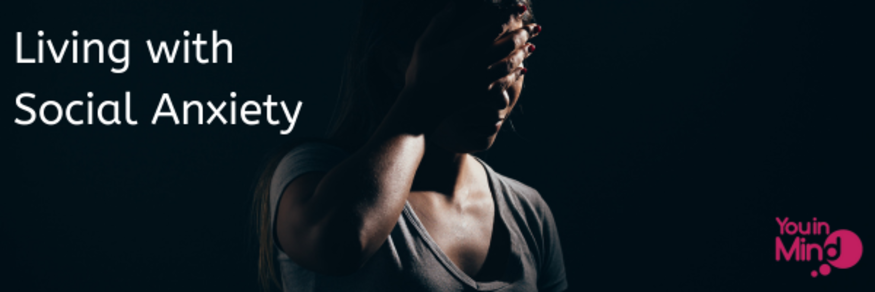
Living With Social Anxiety
Social anxiety disorder is a common mental health condition affecting millions worldwide. It can be characterised by excessive and persistent fear of social situations, leading to, in some cases avoidance of social situations completely.
According to a survey conducted by the Mental Health Foundation in 2018, approximately 12.5% of the UK population experiences social anxiety at some point in their lives.
The survey also found that social anxiety was more common in women than men and that social anxiety was most common in younger people. The survey found that 19.7% of those aged 18-24 reported experiencing social anxiety, compared to 6.6% of those aged 55 and over.
In this article, we explore some of the triggers and symptoms of social anxiety, as well as some effective strategies to overcome it.
Triggers of Social Anxiety Disorder
Social anxiety disorder can be triggered by various situations, such as public speaking, meeting new people, dating, or attending social events. It may also be argued that recent events over the last few years have also played their part, through increased isolation, fears around health, difficulty in getting the right support required and a change in social norms may all have played a part.
Here are some common triggers of social anxiety:
1. Performance situations: People with social anxiety often feel intense anxiety when performing in front of others, such as giving a presentation or playing a musical instrument.
2. Social situations: such as attending a party, going on a date, or eating in public.
3. Interpersonal interactions: People with social anxiety may feel anxious about meeting new people, making small talk, or speaking up in a group.
4. Embarrassment or humiliation: Fear of embarrassment or humiliation is a common trigger of social anxiety, as people with this condition may feel extremely self-conscious and worry about being judged by others.
Symptoms
The symptoms of social anxiety disorder can be both physical and psychological.
1. Physical symptoms: Social anxiety can cause physical symptoms such as sweating, trembling, blushing, rapid heartbeat, nausea, and difficulty breathing.
2. Cognitive symptoms: People with social anxiety may experience cognitive symptoms such as excessive worry, negative self-talk, and irrational beliefs about social situations.
3. Behavioral symptoms: Social anxiety can lead to avoidance behaviours such as avoiding social situations, skipping school or work, and avoiding public speaking or performing.
4. Emotional symptoms: Social anxiety can also cause emotional symptoms such as fear, embarrassment, shame, and low self-esteem.
Steps to Overcoming Social Anxiety Disorder
Social anxiety disorder can be a challenging condition to live with, but there are effective strategies to overcome it. Here are some tips to help you manage your social anxiety or to support those who you know may be affected:
1. Practice relaxation techniques: such as deep breathing, progressive muscle relaxation, and mindfulness meditation can help you reduce your anxiety and calm your mind.
2. Challenge your negative thoughts: People with social anxiety often have negative and irrational thoughts about themselves and social situations. Learning to challenge these thoughts and replace them with more positive and realistic ones can help you reduce your anxiety.
3. Face your fears gradually: Avoidance behaviours can reinforce your social anxiety, so it's important to gradually face your fears and step out of your comfort zone. Start with small and manageable situations and gradually work your way up to more challenging ones.
4. Seek professional help: If your social anxiety is interfering with your daily life, it may be helpful to seek professional help. Cognitive-behavioural therapy (CBT) is a type of therapy that has been proven to be effective in treating social anxiety disorder.
5. Join a support group: Connecting with others who are experiencing similar challenges can be helpful in managing social anxiety. Joining a support group can provide you with a safe and supportive environment to share your experiences and learn from others.
Living with this condition can significantly impact a person's quality of life, however, with the right strategies and support, it is possible to manage both symptoms and triggers and lead a fulfilling life. By practising relaxation techniques, challenging negative thoughts, facing your fears gradually, seeking professional help, and joining a support group, you can learn to overcome your social anxiety and build more meaningful connections with others.
